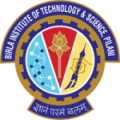One of the Russian top universities, Higher School of Economics (http://www.hse.ru/en/) is a leader in Russian education and one of the preeminent economics and social sciences universities in eastern Europe and Eurasia. Cognitive Neuroscience is one of the main scientific priorities of HSE (https://strategyunits.hse.ru/en/neurobiology). Having rapidly grown into a well-renowned research university over two decades, HSE sets itself apart with its international presence and cooperation. Faculty, researchers, and students represent over 50 countries and are dedicated to maintaining the highest academic standards. Newly adopted structural reforms support HSE’s drive to internationalise and the groundbreaking research of our faculty, researchers, and students. Now HSE is dynamic university with four campuses, 3000 teachers and more than 40000 students. HSE is a leader in combining Russian education traditions with the best international teaching and research practices. HSE offers outstanding educational programs from secondary school to postgraduate studies, with top departments and research centres in a number of international fields. In 2017, HSE was given the ability to award its own academic degrees (under a decree signed by Russian Prime Minister Dmitry Medvedev). HSE considers it as an important breakthrough because it allows HSE to globalize the system of post-graduate education and the training offered to young researchers. It also allows the university to realize its full potential in the Russian academic market. For years, HSE has been working with RF Ministry of Education on reforming RF educational standards.
iBRAIN project is realized in HSE by the Institute of Cognitive Neuroscience (ICN) (https://neuro.hse.ru/en/). ICN is an international interdisciplinary HSE research department. Professors and researcher with different background and scientific interests work here. Psychologists, biologists, mathematics and others develop applied and theoretical studies in the field of cognitive science and neurotechnologies. ICN areas of research cover such topics as perception, communication, attention, cognitive control, memory, decision making, behavioral genetics, modeling of cognitive processes and computational neuroscience, including dynamic brain connectiomics in health and pathology. ICN’s laboratories are equipped with cutting-edge technologies such as multichannel EEG, MEG, fMRI, TMS and eye-tracking for studies of brain mechanisms of human behaviour.
ICN has its own english-speaking Master’s programme on Cognitive Sciences and technologies “Cognitive Sciences and Technologies: From Neuron to Cognition” (https://www.hse.ru/en/ma/cogito/). To participate in iBRAIN project we invite master students interesting in scientific career in neurobiology and neurotechnologies.










